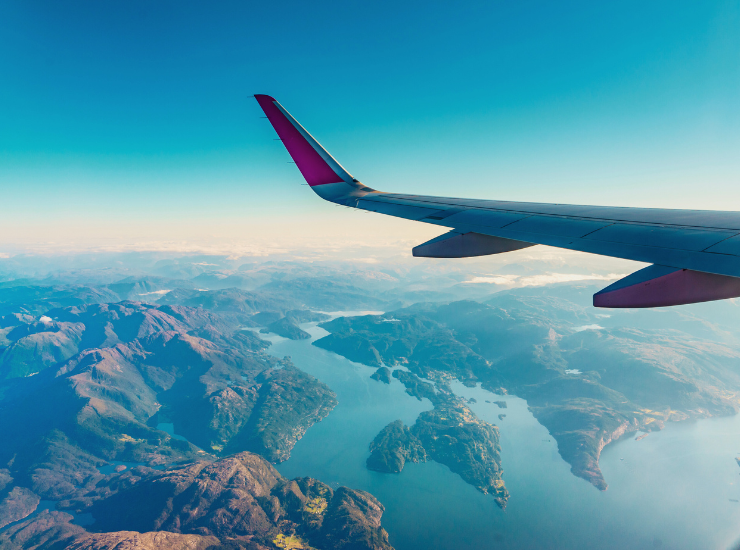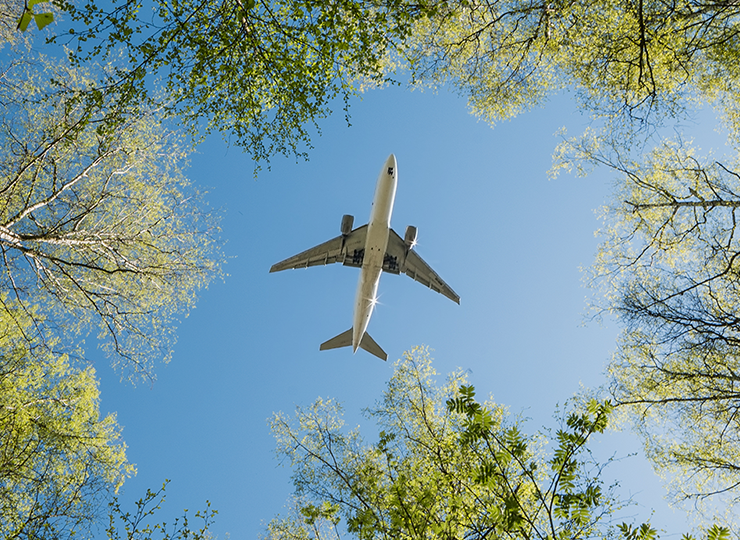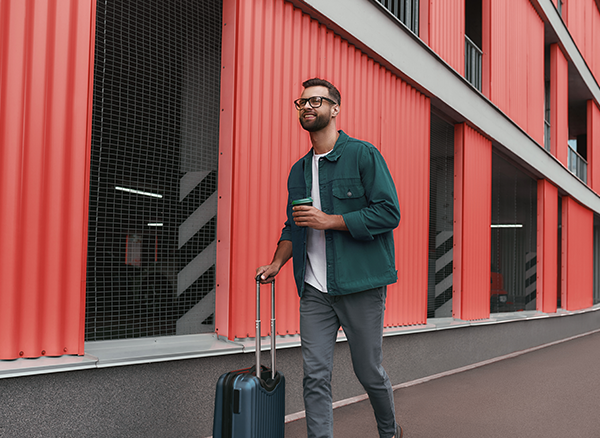

Transformative Travel Trends Over the Last 10 Years
Travel has evolved dramatically over the past decade, shaped by technological advancements, shifting traveler priorities, and global events. From the rise of sustainable tourism to the growing appeal of solo adventures and digital nomadism, the way we explore the world looks very different to ten years ago. Social media now influences destination choices, wellness retreats have become mainstream, and the blending of work and travel—known as “bleisure”—is more popular than ever.
We’ll explore the key travel trends that have reshaped the industry, making travel more accessible, meaningful, and innovative than ever before. Whether you’re an avid traveler or an industry professional, these trends provide valuable insights into the future of travel.
Emergence of sustainable travel
Sustainable travel has gained significant traction, driven by rising awareness of environmental and social concerns. More travelers are prioritizing eco-friendly accommodations and transportation, mindful of their carbon footprint. This change has led to the introduction of green certifications for hotels and tour operators, promoting sustainable practices industry-wide. Destinations are increasingly highlighting local experiences that support the community and protect the environment.

Impact of social media
Social media has transformed destination popularity, with Instagram and TikTok turning hidden gems into viral hotspots. The allure of picturesque locales, like Bali’s beaches and Tokyo’s streets, has skyrocketed due to widespread sharing. Social platforms are now essential tools for travel planning, providing endless itineraries, reviews, and tips. Influencers and content creators shape travel trends by showcasing destinations and unique experiences. Travelers rely on these visual and personal insights to make informed choices, driving demand and changing how we discover the world.
Increasing popularity of traveling alone
Solo travel has grown exponentially over the last decade, attracting those who value the independence and personal growth it offers. From urban exploration to off-the-beaten-path adventures, solo travelers relish the freedom to set their own pace and agenda. In response, the travel industry has evolved, providing more resources and options for individuals traveling alone. This includes single-occupancy accommodations, tailored group tours, and specialized safety measures. The shift reflects a broader trend toward self-exploration and tailored experiences, making solo travel an appealing option for many.

Innovations in travel technology
Advances in technology have reshaped how trips are planned and experienced. Travel apps and digital platforms have made booking flights, accommodations, and activities seamless and customizable. Augmented reality and virtual reality tools offer immersive previews of destinations, helping travelers make more informed decisions. AI-driven recommendations tailor travel experiences to individual preferences, enhancing the overall journey. Smart luggage, contactless payments, and digital boarding passes have also streamlined the travel process, making it more efficient and hassle-free. The integration of these technologies ensures that travelers have access to real-time information and support, improving their travel experience from start to finish.
Rise of experience-based travel
Travelers now seek to engage more deeply with the destinations they visit. This has led to an increase in activities that offer cultural immersion, such as cooking classes, art workshops, and community-based tourism. Instead of just checking off famous sights, people are looking for meaningful interactions that provide insight into local traditions and ways of life. This shift has also spurred the growth of platforms and tours that focus on authentic experiences, allowing visitors to connect with local communities and create lasting memories.

Blending work and leisure travel aka Bleisure
Combining work and leisure travel has grown in popularity, enabling individuals to explore new destinations while handling professional duties. This trend has been bolstered by the increasing flexibility of remote work, allowing people to extend business trips for personal enjoyment. Hotels and airlines are adapting by offering packages and amenities that cater to these dual-purpose travelers. Enhanced Wi-Fi, dedicated workspaces, and tailored services make it easier to balance work and leisure seamlessly. As more people embrace this lifestyle, the travel industry continues to innovate to meet their needs.
Rise of short, frequent getaways
Many travelers now favor brief, regular trips over extended vacations. These short getaways provide a quick change of scenery and require less planning, making them more accessible. The availability of budget airlines and affordable accommodations has made it easier to book spontaneous trips. Popular destinations often cater to these short stays with weekend packages and special offers, encouraging more frequent travel. Additionally, the rise of flexible work arrangements allows people to take advantage of long weekends and holidays for mini-vacations. This trend reflects a desire for balance, offering a refreshing escape without the need for lengthy time off.

Rise of the digital nomad movement
The digital nomad lifestyle has flourished, spurred by the growth of remote work. This trend allows people to blend their professional duties with the exploration of new places. Cities like Chiang Mai, Bali, and Lisbon have become hotspots, offering coworking spaces and events that cater to this mobile workforce. The ability to work from anywhere has led to the development of communities and networks that support this way of life. Enhanced internet connectivity and the increasing availability of remote-friendly amenities have made it easier for people to maintain their careers while living in different parts of the world. The digital nomad movement has reshaped conventional ideas about work and travel, promoting a lifestyle that values flexibility and new experiences.
Emphasis on health and wellness travel
The growing interest in health and wellness has driven travelers to seek destinations that offer more than just relaxation. Yoga retreats in Costa Rica, spa getaways in Thailand, and holistic health resorts have seen a rise in popularity. Activities like meditation sessions, fitness boot camps, and wellness workshops are now key components of travel itineraries. More people are looking to enhance their physical and mental well-being while on vacation, opting for experiences that focus on mindfulness, healthy eating, and stress relief. Resorts and hotels are responding by providing specialized wellness programs and facilities, including organic dining options, fitness centers, and mental health services. This trend highlights a shift towards integrating well-being into travel plans, catering to those who prioritize their health in every aspect of their lives.

Evolution of travel
The past decade has been a transformative period for the travel industry, with trends driven by technology, changing lifestyles, and a deeper appreciation for meaningful experiences. From sustainability and solo travel to digital nomadism and wellness tourism, these shifts have reshaped the way people explore the world. As travel continues to evolve, we can expect even greater innovation, increased flexibility, and a stronger focus on personalized and responsible tourism.
Whether you’re embracing short getaways, seeking immersive cultural experiences, or blending work and leisure, the future of travel promises endless opportunities to explore the world in new and exciting ways.
Ready to take on another 10 years of transformative travel trends with 1000MTG?
Contact 1000 Mile Travel Group today!



